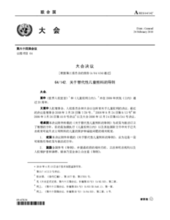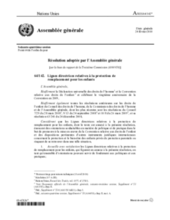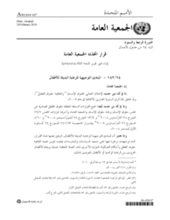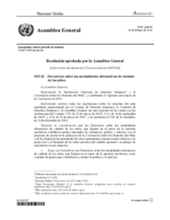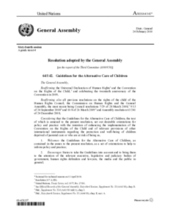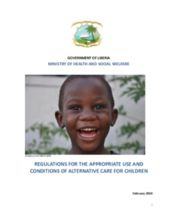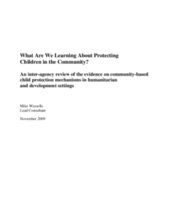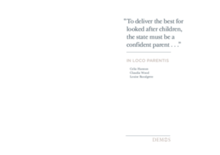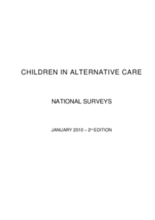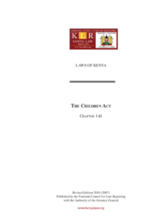Displaying 2051 - 2060 of 2223
The Guidelines for the Alternative Care of Children were endorsed by the United Nations General Assembly on 20th November 2009, in connection with the 20th anniversary of the UN Convention on the Rights of the Child.
Les lignes directrices pour la prise en charge alternative des enfants ont été endorsées par l'Assemblée Générale des Nations Unies, dans le sillage de la commémoration du 20e anniversaire de la Convention des Nations Unies relative aux droits de l’enfant.
The Guidelines for the Alternative Care of Children were endorsed by the United Nations General Assembly on 20th November 2009, in connection with the 20th anniversary of the UN Convention on the Rights of the Child. This momentous day marked a culmination of years of discussions and negotiations led by the Government of Brazil, in partnership with Group of Friends and civil society.
Las directrices sobre las modalidades alternativas de cuidado de los niños fueron endosados por la Asamblea General de las Naciones Unidas el 20 de noviembre de 2009, en conexión con el 20a aniversario de la Convención de los Derechos del Niño de la ONU.
The Guidelines for the Alternative Care of Children were endorsed by the United Nations General Assembly on 20th November 2009, in connection with the 20th anniversary of the UN Convention on the Rights of the Child.
Regulations and tools designed to create the basis for reforming welfare institutions for the safe and appropriate administration of alternative care.
An interagency review of the available global evidence on community-based child protection mechanisms, their effectiveness, cost, scalability, sustainability and impact on children’s protection and wellbeing
This report by the UK-based independent think tank, Demos, considers what the UK care system would look like if it were reconfigured to avoid the delay, instability, and abrupt transitions many young people experience. It demonstrates how this type of system could also be less costly to the states in both the short and long term.
In 2009 Eurochild carried out a survey of the situation of children in alternative care in Europe through its member organisations. The survey was not intended as a scientifically rigorous research exercise but rather to identify what information is readily available and to note some common trends across Europe.
The Children Act, Chapter 141 is a Kenyan law that addresses provision for parental responsibility, fostering, adoption, custody, maintenance, guardianship, care and protection of children; provision for the administration of children’s insti

